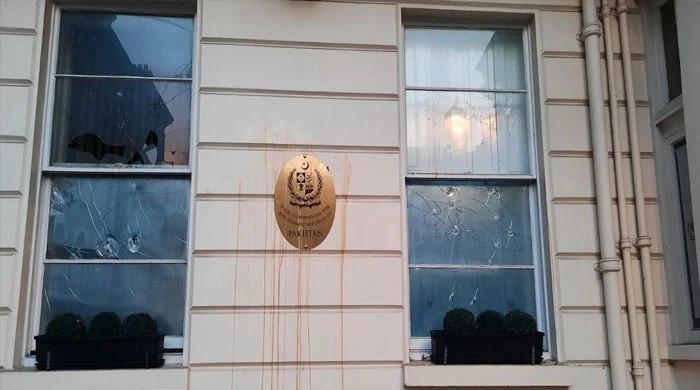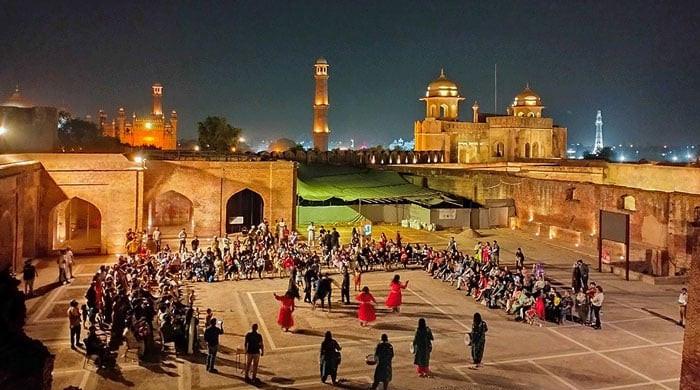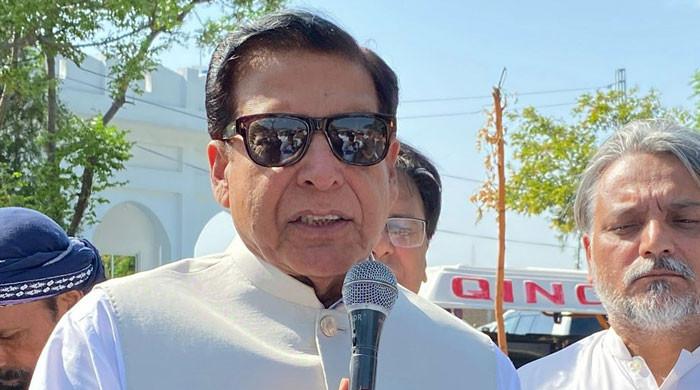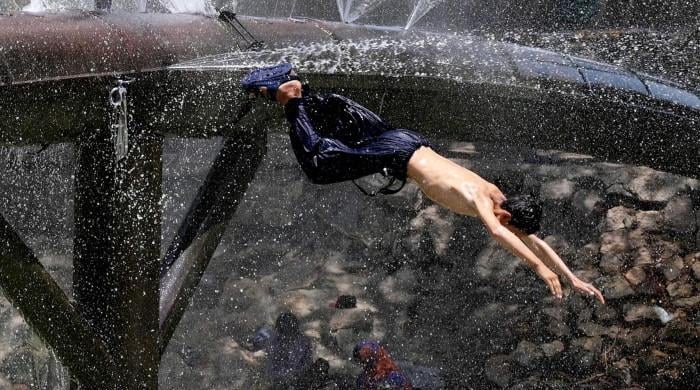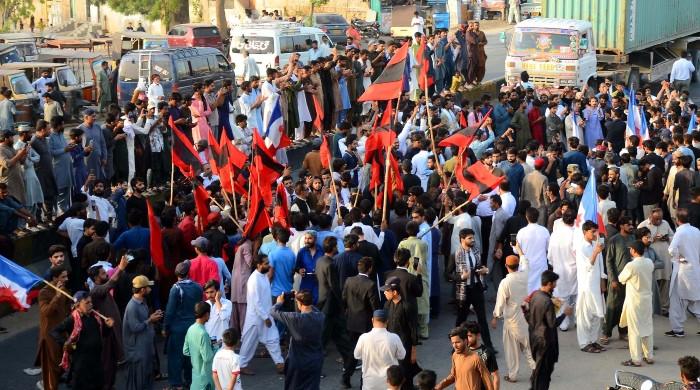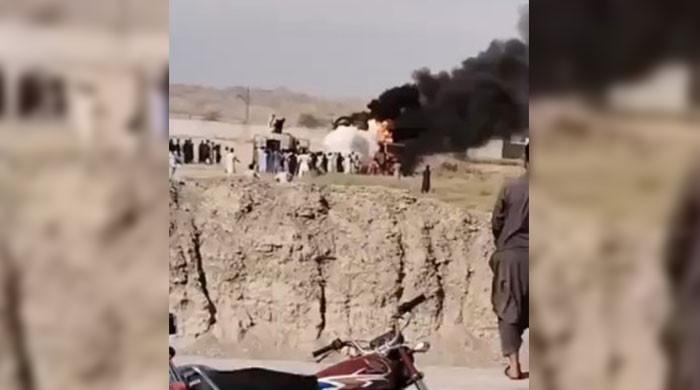HRCP expresses serious reservations concerning freedom of expression
HRCP says the incumbent govt must not make the mistake of taking human rights issues lightly during its tenure
April 30, 2022
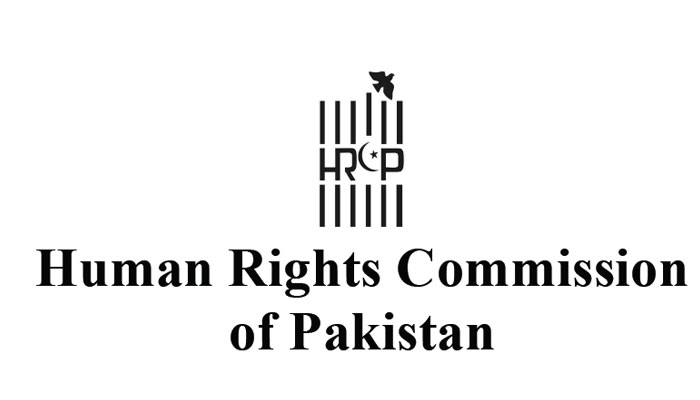
- HRCP says incumbent govt must not make the mistake of taking human rights issues lightly during its tenure.
- "Govt must commit to protecting freedom of expression and the rights of all vulnerable and excluded groups," HRCP says.
- In 2021, in at least nine cases, journalists were intimidated or silenced altogether.
ISLAMABAD: The Human Rights Commission of Pakistan (HRCP), in its flagship annual report ‘the State of Human Rights in 2021’, has expressed serious reservations concerning freedom of expression in 2021, The News reported Saturday.
According to HRCP data, in at least nine cases, journalists were intimidated or silenced altogether, whether in the form of assault, enforced disappearance, murder or overt censorship.
“Additionally, the previous government will be remembered for attempting to impose the draconian Pakistan Media Development Authority Ordinance on the press. With this fundamental right in peril, all other rights too were increasingly constricted,” it said.
The state’s attempts to expand the scope of restrictions on freedom of expression under Article 19 of the Constitution have emboldened non-state actors to impose their whims — often violently — on those who do not agree with them.
Read more: New wave of enforced disappearances alarms HRCP
Moreover, the savage murders of a Sri Lankan factory manager in Sialkot by a lynch mob on allegations of blasphemy, and of human rights defender Nazim Jokhio allegedly by PPP lawmakers, are both cases in point.
The report observes that the near-absence of political consensus-building was reflected in the number of presidential ordinances issued by the previous federal government — a record 32 issued in 2021. As of end-December 2021, the long-awaited bill aimed at criminalising enforced disappearance as a separate, autonomous offence, had still not been passed. The highest number of enforced disappearances reported to the Commission of Inquiry on Enforced Disappearances in 2021 was in Balochistan, at 1,108.
It further noted that escalating religiosity remained a cause for grave concern, given the implications for women and religious minorities. “This was evident from the Council of Islamic Ideology’s objections to the Domestic Violence Prevention and Protection Bill 2020 and Prohibition of Forced Conversions Bill 2021,” it said, adding that yet, with 5,279 rapes and 478 honour killings registered in the country and the macabre murder of Noor Mukaddam in Islamabad, women’s rights activists rightly spoke of a ‘femicide emergency’ in Pakistan in 2021.
Read more: PFUJ strongly condemns harassment of journalists
Meanwhile, with the pool of jobless people swelling as companies downsized in 2021, the plight of workers and peasants deteriorated significantly, especially with a mere Rs2,000 increase in the minimum wage in Punjab and the Supreme Court’s decision to stay the Sindh government’s move to increase the wage to Rs25,000.
“While the previous government claimed that the Single National Curriculum would reduce educational disparities, it drew strong criticism from education experts and human rights defenders for its lack of inclusivity and poor pedagogy,” the report mentioned.
Both the National Commission for Human Rights and the National Commission on the Status of Women (NCSW) were made functional and new chairpersons were appointed, although regrettably, the NCSW appointment was marred by political controversy.
There was a marked fall in the number of death sentences awarded, from at least 177 persons in 2020 to 125 in 2021. No executions were reported to have been carried out, while in a landmark judgment, the Supreme Court commuted the sentences of three mentally disabled prisoners on death row.
Read more: HRCP condemns murder of Nazim Jokhio
“The incumbent government must not make the mistake of taking human rights issues lightly during its tenure. It must commit to protecting freedom of expression and the rights of all vulnerable and excluded groups,” the commission said.
At the same time, it must not make the mistake of acquiescing to far-right groups such as the TLP, which had no qualms about resorting to violence to further its ends in 2021, or of ignoring citizens’ voices — whether of people in Gwadar demanding a stake in the region’s economic development or of tribespeople in Khyber Pakhtunkhwa calling for the state to uphold law and order in the face of increasing militancy.
It is worth mentioning that for over 30 years, the HRCP has been the only organisation to have consistently documented the country’s human rights situation, providing a unique barometer of human rights and democracy.




